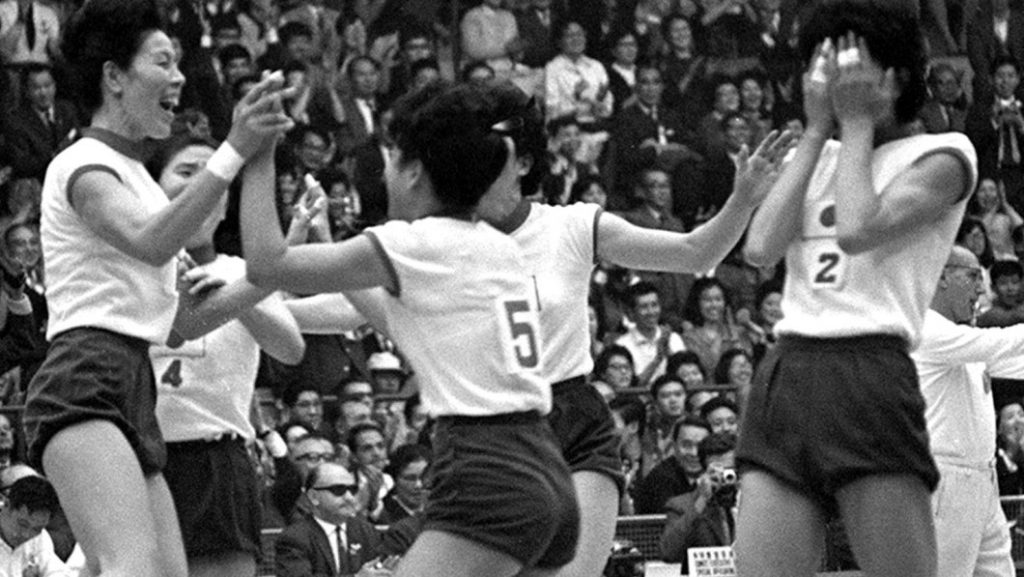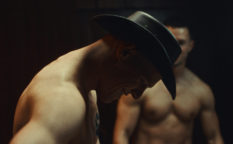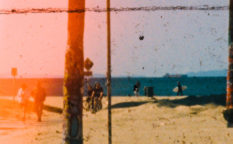Review: The Witches of the Orient (2021)

One of the greatest sports success stories is that of the Japanese women’s volleyball team, so-called “The Witches of the Orient” and their unbelievable winning streak of 258 games in the early 60s. Numbers have to be explained here: back then, volleyball was an amateur sport and it was not uncommon that the national teams were composed of the players playing for the same club, which was also the case with “The Witches”. The complete national team, meaning players, coaches and the rest of the crew, came from the same club Nichibo Kaizuka established at and by a textile factory. The streak is combined of the games of the national team at the international competitions and the club games in the national championship. The crown of their success was the gold medal at the 1964 Summer Olympics in Tokyo, which was also the event when volleyball was first introduced as a competitive Olympic sport.
“The Witches”, formerly known as “The Typhoon from the Orient” (the nickname was changed because their gameplay and the successes seemed supernatural to the audience and the press), soon rose to the status of the national heroines in Japan, inspiring a number of documentaries, manga and anime series. Despite all the buzz about them, “The Witches” rarely spoke publicly. That is, up until the documentary The Witches of the Orient written and directed by Julien Faraut that premiered at the Big Screen Competition of IFFR.
Faraut, who already has two unconventional sports documentaries under his belt, Un regard neuf sur Olympia 52 (2013), showcased only in France, and the more prominent Berlinale title John McEnroe: In the Realm of Perfection (2018), uses the former team members who are now nice old ladies to open the film after one of many brief and thoughtfully placed textual info-cards. The former Witches sit at the dinner table while the camera orbits around them. Each one gets a moment to say something about her team nickname and “special power”, the family background, the beginning of the sports career, the exhausting training method promoted by their WW2 veteran coach Daimatsu, the unique gameplay style with plenty of rotation in the field, and throwing themselves on the ground…
Since film is a predominantly visual medium, when it comes to the sports success story, Faraut opts for showing rather than telling or letting his subjects re-tell it. To achieve that, he devises a series of impressive montages in which the vintage footage from the trainings and the World Championship games is interwoven with excerpts from the late 60s and early 70s anime series Attack No. 1. The crown of it is saved for the end of the film and the 1964 Olympics final, for which Faraut widens its aspect ratio from 4:3 to 16:9 to highlight the triumphant feeling.
The other great thing Farault does is the emphasis on the historical context of Japan in that period of time. The scars of the Second World War are still visible, the team coach is a veteran officer who had managed to save his soldiers from the certain death in Burmese jungle and only a few of the players had grown up with both of their parents alive. The Tokyo Olympics themselves were originally scheduled for 1940, the aftermath of it is well known, and Farault elegantly pictures it editing Hiroshima next to the 1936 Berlin Olympics closing ceremony. The event of 1964 was a perfect opportunity for the country to show its power of the post-war recovery and to enter the world stage as an economic superpower. The anticipated sport successes would be a metaphor for all that, but the surprising loss of the Japanese athletes in the finals of their national sport, judo (also introduced to the Olympic competition in 1964), put all the pressure to the women’s volleyball team which delivered and achieved a historical success.
However Farault successfully chose the topic and put it into the context to tell an inspiring story, the impression is that he did not use the one unique asset he had at his disposal, “The Witches” themselves in flesh. There certainly was some more space for emphasis on emotion of the whole heroines’ journey and there was certainly time for it in the film’s 100 minute runtime. Nevertheless, The Witches of The Orient is still more than your basic sports documentary, as it feels inspired and inspiring, while being technically marvellous and artistically creative.
Original title: Les sorcières de l’Orient
Year: 2021
Runtime: 100’
Country: France
Languages: Japanese, French
Directed by: Julien Farault
Written by: Julien Farault
Cinematography by: Yutaka Yamazuki
Editing by: Andrei Bogdanov
Music by: K-Raw, Jason Lytle
Sound by: Léon Rousseau
Graphic design by: William Laboury
Produced by: William Jéhannin
Production companies: UFO Production, L’institute du sport de l’expertise et de la performance
Supported by: CNC, Région Île-de-France, PROCIREP, ANGOA
Distribution by: UFO Distribution
















